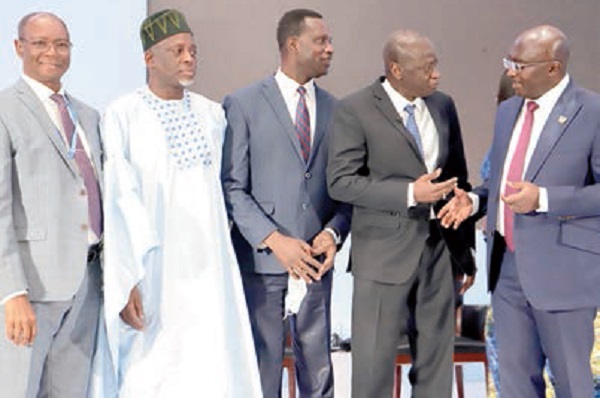MINISTERS IN 22 West and Central African countries yesterday met in Accra to strategise on how to enhance learning (education) in their respective countries.
The meeting, which is being spearheaded by the World Bank, was meant to discuss and adopt a new education plan to improve learning outcomes in the region.
The education plan, expected to be implemented from 2022 to 2025, requires government and society to prioritise education for all children of school-going age.
It is hoped that governments in the region would allocate significant financial resources towards implementing the strategy, to ensure that 30 million children in the region can read and understand simple tasks by 2030.
It is also to ensure that 12.5 million adolescent girls are enrolled in school whilst 3.7 million additional young people acquire basic functional skills as one million youth secure digital skills by 2025 to enable 60 per cent of them to obtain better jobs.
Vice President Dr. Mahamudu Bawumia walked participants through what the government of Ghana has been doing for the past five years since the Akufo-Addo-led New Patriotic Party (NPP) took over the country’s administration.
He said this included the introduction of ambitious education reforms and policies to reposition the country’s education system to produce more assertive and empowered Ghanaians.
“Ghana’s education reform agenda can benefit from collaboration and synergy with our regional partners,” the Vice-President emphasised.
Dr. Bawumia added that as the case of several other countries in Western and Central Africa, Ghana had introduced several education reforms and policies to strengthen and improve the quality of education delivery and increase accessibility for all children.
The Vice President, however, noted that more efforts were needed to rationalise the governance of education systems to achieve greater coherence, cooperation and coordination.
“Ghana is dealing with the issue of poor learning and the consequences of the COVID-19 pandemic, that is why I am happy about the focus on the strategic themes of the conference, including finance and governance,” Dr. Bawumia added.
He indicated that the government has instituted strong public financial management systems and processes to reduce certain bottlenecks in the downstream budget execution and reporting through the expansion of the Ghana Integrated Financial Management Information System (GIFMIS) at decentralised levels.
Under the Free SHS programme, Dr. Bawumia said enrolment increased from 800,000 in 2017 to almost 1.3 million in 2022.
He added that Ghana’s Gross Tertiary Enrolment Ratio from the current 20 per cent is expected to improve to 40 per cent by 2030.
World Bank’s Vice President for Western and Central Africa, Ousmane Diagana, said the bank’s strategy was to respond to the needs of the continent, and cited Ghana as an example of good leadership in her education reforms.
BY Charles Takyi-Boadu


